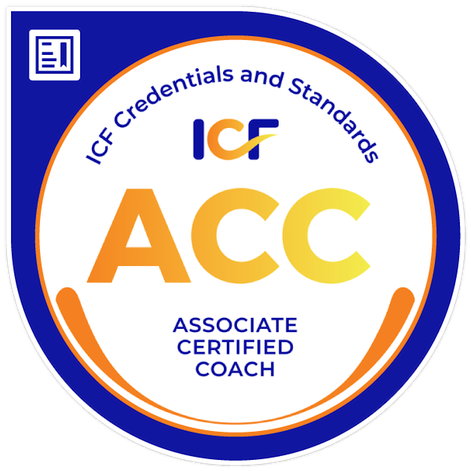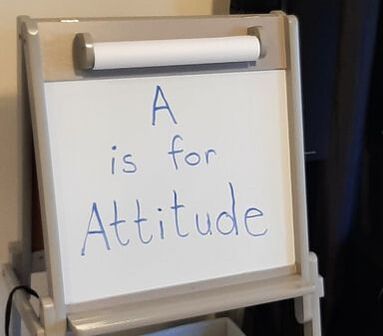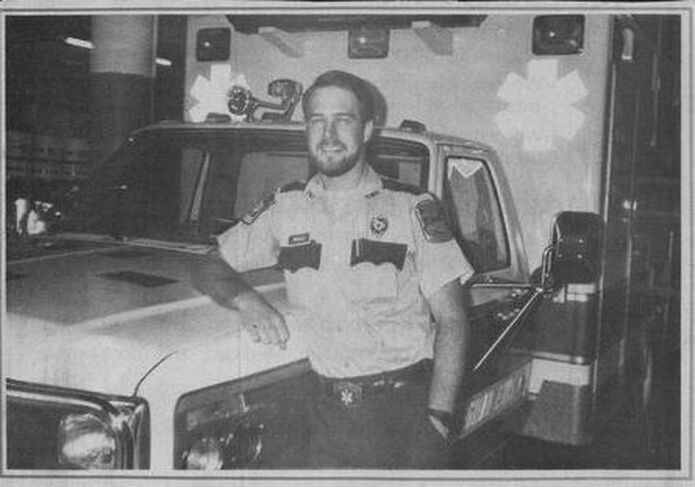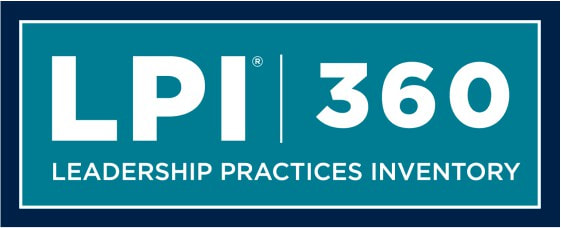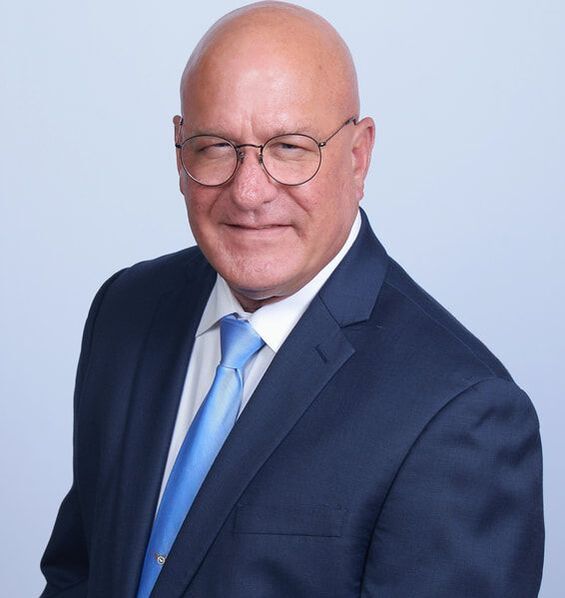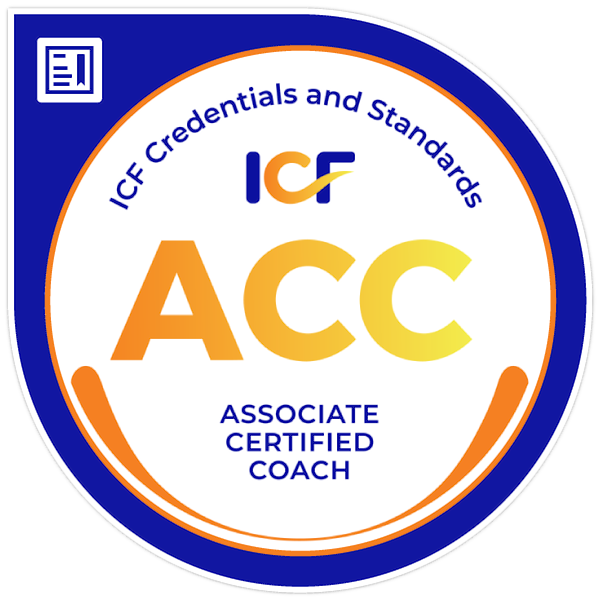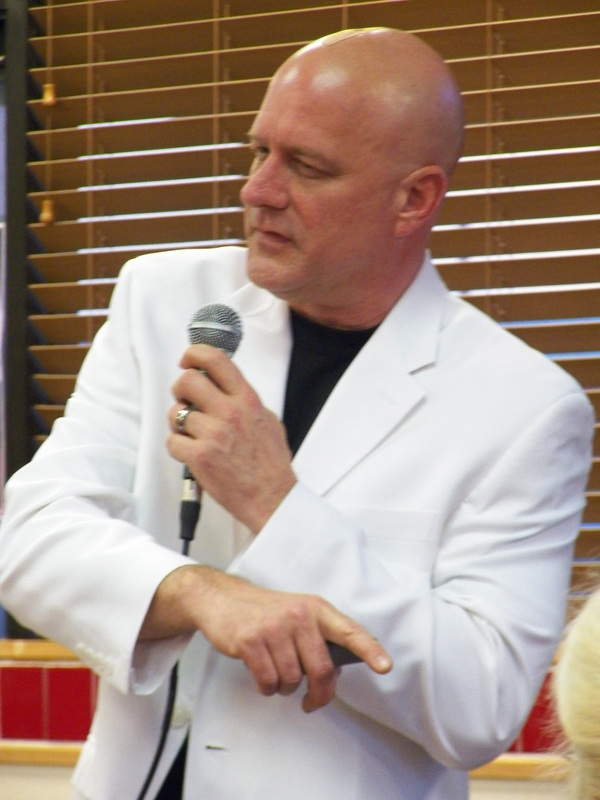Contentment is the only real wealth. ALFRED NOBEL In a world that constantly bombards us with messages of striving for more, it's easy to lose sight of what truly constitutes wealth. Alfred Nobel, the visionary behind the Nobel Prizes, understood this paradox intimately. Despite his journey from childhood poverty to immense wealth, he recognized that material riches alone did not equate to contentment or fulfillment. His assertion that contentment is the ultimate wealth resonates profoundly in today's hyper-competitive society which always seem to scream, "More!" Benjamin Franklin echoed this sentiment, emphasizing that contentment transcends financial status. He understood that a mindset of gratitude and satisfaction enriches even the humblest of circumstances. Content makes poor men rich; discontent makes rich men poor. BENJAMIN FRANKLIN But contentment shouldn't be misconstrued as complacency. True contentment, as Nobel and Franklin both exemplified, coexists with a relentless pursuit of purpose, growth, and contribution. It's about embracing the present moment while striving for progress—a dynamic equilibrium between gratitude and ambition. Nobel continued to invent and patent hundreds of things to help improve the world even after he had amassed great wealth. Even at 80 years old, Franklin continued to serve the burgeoning new US as a well-respected senior statesman. As leaders, cultivating this mindset is paramount. In the midst of ambitious goals and relentless pursuits, it's easy to succumb to the illusion that external achievements alone define success. However, true leadership stems from a deep-rooted sense of contentment—a wellspring of inner peace that radiates outward, inspiring and empowering others. So how do we cultivate this invaluable asset in our lives and leadership journeys? First, it begins with a shift in perspective. Instead of fixating on what we lack or desire, we must train ourselves to appreciate the abundance that surrounds us. Practicing gratitude daily can rewire our brains to focus on the positives, fostering a sense of contentment irrespective of external circumstances. Secondly, identify, clarify, and leverage your purpose. We can use our imagination to develop a vision of what and who we want to become, what difference we want to make in the world, and to use our conscience to decide what principles and values will guide us. When we have a clear sense of purpose, it organizes and drives purposeful goals, helps us manage behaviors, and provides a sense of deeper meaning. It promotes greater goal commitment and engagement with our goals. It gives us a reason to get up in the morning. When we work at something which fate or the Divine has called us to—to something which we work at and which we love—the work-joy dichotomy disappears. When we believe in and act on something that gives us greater meaning and purpose in our lives, we simply try harder, work longer, are more creative, and produce better results, products, and outcomes. It also serves to bind others together in a higher, common cause and boosts engagement, connection, and team cohesion. It brings a sense of greater contribution and fulfillment. Third, embracing a growth mindset allows us to pursue excellence without being consumed by perfectionism or comparison. Understanding that failure is an inevitable part of growth liberates us from the shackles of fear and insecurity, paving the way for authentic fulfillment. Lastly, connecting with a community of like-minded individuals who share our values and aspirations can provide invaluable support and accountability on our journey towards contentment and purpose-driven leadership. In essence, the true wealth lies not in the accumulation of possessions or accolades, but in the richness of our inner landscape—the contentment that transcends circumstances and fuels our journey towards meaningful contribution and fulfillment. Call to Action Ready to embark on your journey towards purpose-driven leadership and personal growth? Explore our Purpose-Driven Leadership Program, coaching services, speaking engagements, and transformative assessments like the LPI360. Connect with us to unlock your full potential and lead with authenticity and impact. Have an amazing journey today! Alan Mikolaj is a seasoned coach and leadership development consultant with nearly 20 years of experience. He is passionate about helping leaders transform their leadership, their teams, and their organizations. He has an impactful, professional approach driven by a passion for meaning and purpose, a growth mindset, and a commitment to excellence and service in order to drive change and results. Alan holds his Master of Arts in Clinical Psychology and Associate Certified Coach credential with the International Coaching Federation (ICF) and maintains their ethics and standards of behavior, including the standards regarding confidentiality. You can learn more about them on the ICF website. Transformational change starts with a conversation! Alan is on a mission to partner with like-minded leaders who want to make a positive difference in the world. Schedule your free, one-hour session by clicking here: Discovery Conversation with Alan Or call or email: Contact Page
0 Comments
When I was 16 years old and too young to fully grasp the sensitivity of the situation, I interviewed my grandmother’s friend, JoAnn, who was terminally ill, for a school project entitled “The Speed of Life.” About five minutes into the interview I began questioning JoAnn about her illness and her life situation. “So,” I tried to delicately ask, “What is it like to wake up every morning and know that you are dying?” “Well,” she replied, “What is it like to wake up every morning and pretend that you are not?” MARC CHERNOFF In the fabric of existence, there’s an undeniable truth: We are all journeying towards the same inevitable destination—mortality. And yet, like Marc Chernoff reports in his 2014 post, 25 Things You Should Never Stop Doing for Yourself, that I quote above, “What is it like to wake up every morning and pretend that you are not?” many of us deny, or at least suppress, that truth. Yet, it's not the ticking clock that defines us, but rather how we choose to spend the time we have. This profound realization forms the cornerstone of my mission: Partnering with like-minded leaders who want to make a positive difference in the world. When I think back on my encounters with mortality, particularly within the realm of healthcare and EMS, I’m reminded of the fragility of life. Each life stage, from infancy to the elderly, has whispered to me the same message: Time is fleeting. But in this fleetingness lies an invitation—to awaken and transcend the mundane; to align our actions with our deepest truths and purpose. Reviving the Essence of Purpose Echoing through the ages are the words of sages and spiritual luminaries, urging us to confront our mortality. From the teachings of Jesus of Nazareth to the meditations of Anthony de Mello, SJ, we're called to reckon with the finite nature of our existence, that one day, "I will die." It's not an exercise in morbidity, but a pathway to clarity—a chance to distill our essence and unearth the purpose pulsating within us. In both my book, A Travel Guide to Leadership, and in the Purpose-Driven Leadership Program, I pose questions that pierce through the veil of superficiality:
Embracing Mortality: A Leadership Imperative Leadership, in its essence, is not merely about managing tasks or accruing accolades. It's a sacred dance—a call to shepherd souls and catalyze change. Yet, when we avert our gaze from mortality, we risk diluting our leadership potential. By acknowledging our finite nature, we infuse our leadership with a sense of urgency and authenticity. Imagine awakening each dawn with the clarity that this day could be our last. How would we lead differently? How would we love more fiercely, speak more authentically, and act more boldly? It's this sense of immediacy that births purpose-driven leaders—individuals who lead not from a place of fear but from a wellspring of conviction and compassion. A Call to Action Today, I extend an invitation—a summons to leaders poised to embrace their mortality and seize the reins of purpose. Through my Purpose-Driven Leadership Program, we delve deep into the crucible of introspection, crafting life missions and leadership philosophies that resonate with our core values. With personalized coaching and the transformative power of the LPI360 assessment, we sculpt leaders who lead not just with competence but with unwavering purpose. In the tapestry of existence, mortality serves as both a reminder and a guidepost. It beckons us to live with intention, to lead with conviction, and to leave an indelible mark on the world. So, let's shed the cloak of denial, embrace our mortality, and embark on a journey of purposeful leadership—one that echoes beyond the confines of time itself. In the pursuit of purpose, every moment matters. Let us seize them with reverence, for in embracing our mortality, we unlock the boundless potential of our leadership journey. Enjoy the two inspirational, bonus videos below Have an amazing journey today! Alan Mikolaj is a seasoned coach and leadership development consultant with nearly 20 years of experience. He is passionate about helping leaders transform their leadership, their teams, and their organizations. He has an impactful, professional approach driven by a passion for meaning and purpose, a growth mindset, and a commitment to excellence and service in order to drive change and results. Alan holds his Master of Arts in Clinical Psychology and Associate Certified Coach credential with the International Coaching Federation (ICF) and maintains their ethics and standards of behavior, including the standards regarding confidentiality. You can learn more about them on the ICF website. Transformational change starts with a conversation! Alan is on a mission to partner with like-minded leaders who want to make a positive difference in the world. Schedule your free, one-hour session by clicking here: Discovery Conversation with Alan Or call or email: Contact Page Successful leadership and adaptation feed on the opportunity to learn. Good leaders never slack off learning, they make it conscious, and they take every opportunity to apply it… Leader is or ought to be synonymous with 'learner.' URSULA G. LOHMANN, PhD Former Dean of Academics at the Army Management Staff College Who is the person and leader you want to become this year? As we stride into 2024, it's crucial to contemplate the leader we aspire to become. Are we merely passengers on the journey of personal and professional growth, or are we actively steering our own development? Let's embrace the challenge of ownership over our evolution. Committing to this path not only fuels motivation and engagement but also sharpens focus, cultivates relationships, expands skill sets, and advances careers. Here are five indispensable strategies to empower yourself for a triumphant year ahead: 1) Clarify and Contemplate Your Purpose A clear sense of purpose is the cornerstone of impactful leadership. It is linked to self-actualization, overall well-being, and higher engagement at work. Purpose-driven leadership not only enhances individual satisfaction but also boosts team performance and organizational success. Many have listed purpose-driven leadership as one of the key leadership development trends for 2024, including Forbes and Sylvia Lafair PhD, CEO of Creative Energy Options Inc. You can't contemplate what you don't have. Start by crafting your Life Mission, Leadership Philosophy, and Core Values Statement. These foundational elements will not only guide your daily leadership but also shape your growth trajectory. Reflect on your purpose regularly, fostering self-awareness—an essential trait for effective leadership. Contemplating your purpose implies a certain level of self-awareness; another key competency you may want to consider. A regular, consistent contemplative or meditative practice was identified as a characteristic of the most effective and agile leaders by Bill Joiner and Stephen Josephs in their book, Leadership Agility. Your Life Mission, Leadership Philosophy, and Core Values Statement should be the main driver of not only how you want to show up as a leader everyday, it should also direct your growth and development. If this competency is a developmental opportunity for you, consider enrolling in The Purpose-Driven Leadership Program. It's a powerful, enriching, empirically-driven, and engaging leadership development experience. In this transformative program, you'll discover and unlock the profound impact of both leading with and through meaning and purpose. It can be delivered completely online and on-demand, hybrid, or as in-person workshops—whichever best meets you and your team's needs. 2) Seek Constructive Feedback I call leadership feedback leadership gold. View feedback as invaluable currency in the realm of leadership development. Actively solicit feedback from diverse sources, including supervisors, peers, and subordinates. Embrace both informal conversations and structured assessments like 360° feedback tools, such as the Leadership Practices Inventory or LPI360. Harness insights from industry experts, leadership blogs, and organizational resources. Feedback serves as a compass, guiding your developmental journey and illuminating areas for improvement. 3) Set Developmental Goals and an Action-Plan Identify key behaviors and skills pivotal to your leadership journey. Set both short-term and long-term goals aligned with your aspirations. Consider your current competencies and envisage where you aim to be. Where are you currently in terms of your skills, competencies, and behaviors? Where do you want to be? Consider what career achievements you want to accomplish and by when. What metrics do you need to be focusing on and what do you need to learn and/or boost in order to achieve them? How does your life mission and core values drive what you focus on? Don't procrastinate! Develop an action-plan and work it into your calendar. Block time and hold it sacred. This is your personal and professional development time and you deserve it. Leverage the Eisenhower Matrix, popularized by Stephen Covey in The 7 Habits of Highly Effective People. Some of your goals may be Big Hairy Audacious Goals (BHAG) and need to be broken down, maybe even over several years. That's okay. Others may be as simple as enrolling into a course and taking it. But block the time and take action. And, ask yourself how you are going to hold yourself accountable, what other resources you need, and who can help hold you accountable. 4) Volunteer for stretch assignments and projects Volunteering for challenging, stretch assignments and projects, while on the surface may appear risky, can have huge payoffs in terms of development and career advancement. Take for example the director of an emergency room I worked with who took on the project of reducing a persistent patient wait-time issue. You might think, why is that a stretch-project to take on? Any ER trying to address wait-times has not only internal systems, structures, processes, and people to contend with but almost every upstream and ancillary department in the hospital. A slow lab or radiology department, patient transportation, admissions, administration, receiving floors, surgical services, staffing issues, and even environmental services (cleaning) can impact patient flow through an ER. This type of conundrum for hospitals is so notorious that it inspired an experiential learning activity and game called Friday Night at the ER. Needless to say, this director ended up partnering and working with so many stakeholders in her hospital from the Chief Nursing Officer and VP of Patient Services to frontline hospital cleaning service workers. By the end of the project, not only had they reduced wait-times in the ER, but almost everyone in the hospital had firsthand working experience and a deeper relationship with her. She developed skills and competencies she never had before and set herself up for future success. 5) Embrace Coaching Unlock the full potential of your leadership journey through personalized coaching. Engage with a seasoned professional who offers inquiry, support, and empathy while helping you gain clarity, focus, strategy, and accountability . Coaching provides a confidential space for reflection, goal setting, and skill enhancement. Leverage coaching as a catalyst for accelerated growth, navigating challenges with clarity and confidence. You can learn more about coaching with me here: Coaching with Alan As we embark on this journey of leadership excellence, let's continue to learn, adapt, and evolve. Share your strategies and aspirations for 2024 in the comments below—let's inspire and empower each other to reach new heights. Have an amazing journey today! Alan Mikolaj is a seasoned coach and leadership development consultant with nearly 20 years of experience. He is passionate about helping leaders transform their leadership, their teams, and their organizations. He has an impactful, professional approach driven by a passion for meaning and purpose, a growth mindset, and a commitment to excellence and service in order to drive change and results. Alan holds his Master of Arts in Clinical Psychology and Associate Certified Coach credential with the International Coaching Federation (ICF) and maintains their ethics and standards of behavior, including the standards regarding confidentiality. You can learn more about them on the ICF website. Transformational change starts with a conversation! Alan is on a mission to partner with like-minded leaders who want to make a positive difference in the world. Schedule your free, one-hour session by clicking here: Discovery Conversation with Alan Or call or email: Contact Page Vision is everything for a leader. JOHN MAXWELL I just read a few days ago that for over 30 years, Harvard Business Review has been asking thousands of executives and board members globally to define success using the "champagne question." If we were drinking champagne on New Year’s Eve because your organization had just completed an outstanding year, what would have been accomplished? Coincidentally, in the Purpose-Driven Leadership Program, I ask a slightly different version of that same approach as one of five steps in helping leaders get to the same thing: Imagine it is 3-5 years from now. Your team has been awarded the ‘Team of the Year’ award. A Shared Team Vision I'm talking about a Shared Team Vision. Whereas a Shared Team Mission defines your team's purpose or 'why' and values are the underlying beliefs or principles that motivate people to act one way or another, a Shared Team Vision is a statement of what you hope to achieve in the future. Usually, strategic, project, and/or action plans are created to support and implement that vision. Why should this be important to you as a leader? Jim Kouzes and Barry Posner, the bestselling authors of The Leadership Challenge and creators of the Leadership Practices Inventory assessment have been asking people around the globe a different question for over 30 years. “What are the characteristics of the most admired leaders ?” Respondents are asked to rank order leadership characteristics from a list. Four of these leadership characteristics have been selected by more than 50% of the respondents across time, across industries, and from around the world ever since Jim and Barry began their research. In fact, throughout most of the survey time frame, these four have been selected by more than 65% of respondents. They are (rank ordered):
Forward-looking While all of these characteristics are important for the most effective, purpose-driven, and admired leaders, it is forward-looking that distinguishes a leader. Anyone can be honest, inspiring, and competent without necessarily being a leader. Leaders are expected to communicate a forward-looking vision that points the direction, lifts the fog, and quiets the noise and distractions of everyday work life. A Shared Vision—one in which team members and stakeholders have a voice—enables them to have greater buy-in and to respond with greater focus, and more quickly and safely, in a changing environment. Another reason this is so important for leaders and their teams also comes from Kouzes’ and Posner’s research. When direct reports were asked about the frequency of how often their leader displayed a list of leadership behaviors, those key behaviors that characterize a leader as being forward-looking, are consistently rated at the bottom of frequency for the population of leaders at large. Leading through meaning and purpose with a Shared Team Vision is one of the most challenging competencies for most leaders. So, if you're experiencing any challenges around this key leadership competency, you're not alone. Thankfully, the Purpose-Driven Leadership Program will not only help you get better at it, it will skyrocket your ability to be a forward-looking and a forward-leading leader. It will walk you through a step-by-step process that will guide you and your team towards painting a compelling picture of the future that drives results. All of the great leaders of the past have had a great purpose (authentic & inspiring) and got things done (competent) . They were also all forward-looking; envisioning the future and gazing across the horizon seeing greater opportunities to come. Join me on this journey of leading with and through meaning and purpose. Amplify your leadership effectiveness. Achieve yours and your team's goals and dreams. Lead with purpose-driven leadership. Have an amazing journey today! Alan Mikolaj is a seasoned coach and leadership development consultant with nearly 20 years of experience. He is passionate about helping leaders transform their leadership, their teams, and their organizations. He has an impactful, professional approach driven by a passion for meaning and purpose, a growth mindset, and a commitment to excellence and service in order to drive change and results. Alan holds his Master of Arts in Clinical Psychology and Associate Certified Coach credential with the International Coaching Federation (ICF) and maintains their ethics and standards of behavior, including the standards regarding confidentiality. You can learn more about them on the ICF website. Transformational change starts with a conversation! Alan is on a mission to partner with like-minded leaders who want to make a positive difference in the world. Schedule your free, one-hour session by clicking here: Discovery Conversation with Alan Or call or email: Contact Page What I try to tell young people is that if you come together with a mission, and its grounded with love and a sense of community, you can make the impossible possible. JOHN LEWIS A Legacy from Central Europe It remains astonishing to me that my grandparents on my mother's side, immigrated from Czechoslovakia as young children with their families to embark on a journey to seek a better life, settling as sharecroppers in rural, central Texas. It makes me wonder how bad it must have been in Czechoslovakia that coming to the United States to become sharecroppers was better. Pictured above, my Grandpa Rychlik plowed cotton fields and he and my grandmother had a determination fueled by dreams of a better life for their children, despite language barriers, prejudice, and social inequities. The struggle echoes in my mother's tales of being born at the tail-end of the Great Depression and growing up during World War II and the post-war years. Born into hardship, she began picking cotton as a kindergartner, along with her brothers and sisters pitching in to make ends meet. Amid scorching Texas summers, sleeping on the porch of their modest homestead was a communal necessity. By the time I was a boy and our family visited Grandpa and Grandma, the farm had gained electricity, but they never had running water on the farm. Dropping that bucket down into the deep well on the back porch on a hot, summer day to pull up a cool drink after running through the fields and chasing chickens around the barnyard was both marvelous and astonishing at the same time. This seemingly mundane act of getting a drink of water from the well epitomized the marvels born from resilience. As a suburbanite, the contrast between our lives and theirs became more profound. As I grew and developed, our farm visits transformed from adventurous fun into utter awe and admiration at the grit, courage, strength, character, and commitment to purpose both my grandparents and parents had. A Legacy Born from Slavery John Lewis, referenced in our opening quote, shared a different yet resonant struggle with sharecropping. Growing up in segregated Alabama, John's heritage shaped by the legacies of slavery and subsequent sharecropping, shared a parallel resilience with my family. But unlike my family, he grew up facing the stark reality of racial inequality, even being denied access to the local library due to his skin color. John is quoted as saying, "I remember in 1956, when I was 16 years old, with some of my brothers and sisters and cousins, going down to the public library, trying to get a library card, and we were told the library was for whites only and not for coloreds." John later went on to be a leader in the Civil Rights Movement and served in the US House of Representatives until his death in 2020. He has been described as a leader of conviction, courage, and commitment. Like any great leader, he was devoted to a cause much greater than himself. As pointed out in David Gergen's book, Hearts Touched with Fire: How Great Leaders are Made, John (and other examples) had to sort out and embrace core values, finding a true north, summoning inner courage, and living a life giving back to and serving others. He died a national hero. Connecting Generations Our stories, seemingly worlds apart, find a common ground in the crucible of adversity. The shared hardships, whether plowing fields in Texas or battling segregation in the American South, reveal a universal truth about leadership emerging from the forge of challenges. These connections become the fabric from which purpose-driven leaders are woven. As I explore these intergenerational narratives, it becomes evident that the challenges faced by my family resonate with those encountered by leaders like John Lewis. Their shared experiences of childhood labor and navigating systemic inequalities forged a sense of purpose and an unyielding commitment to creating positive change. The images from my grandparent's farm juxtaposed with John Lewis's memories of being denied access to a library speaks volumes about the struggles each generation faced. Yet, it is precisely these struggles that cultivated the seeds of leadership, rooted in a deep understanding of the value of education, equality, grit, and purpose. Leadership Development & Core Vaues Just as John Lewis's leadership journey was marked by the need to define and embrace core values, my family's experiences underscore the importance of staying true to one's principles. Leaders, whether on a farm or in the hallowed halls of Congress, must navigate challenges with conviction, courage, and unwavering commitment to a cause larger than themselves. Gergen's insights into great leaders resonate powerfully here—the journey towards leadership involves not just overcoming obstacles but also aligning one's compass with true north. It's a process that both Lewis and my grandparents undertook, guiding their families through tough times with a deep-rooted sense of purpose and an unshakable commitment to shared values. The Purpose-Driven Leadership Program These reflections on shared struggles and triumphs pave the way for a crucial discussion about purpose-driven leadership. In my own life, the lessons handed down through generations have fueled my commitment to creating a space for leaders to discover their true north and develop the skills necessary to lead with purpose. In the face of challenges, whether in the fields of rural Texas or the battlefields of civil rights activism, the common denominator is commitment to purpose. The Purpose-Driven Leadership Program aims to channel the spirit of resilience and purpose seen in my family's history and leaders like John Lewis. By intertwining personal narratives, core values, and a commitment to a greater cause, this program is designed to empower leaders who not only navigate adversity but transform it into a catalyst for positive change. Have an amazing journey today! Alan Mikolaj is a seasoned coach and leadership development consultant nearly 20 years of experience. He is passionate about helping leaders transform their leadership, their teams, and their organizations. He has an impactful, professional approach driven by a passion for meaning and purpose, a growth mindset, and a commitment to excellence and service in order to drive change and results. Alan holds his Master of Arts in Clinical Psychology and Associate Certified Coach credential with the International Coaching Federation (ICF) and maintains their ethics and standards of behavior, including the standards regarding confidentiality. You can learn more about them on the ICF website. Transformational change starts with a conversation! Alan is on a mission to partner with like-minded leaders who want to make a positive difference in the world. Schedule your free, one-hour session by clicking here: Discovery Conversation with Alan Or call or email: Contact Page Refer and review like your reputation depends on it and is attached to it. LOREN WEISMAN January 22, 2024 - Laedan Professional Services, LLC is proud to announce the addition of professional referrals services to its repertoire of services. At the core of my commitment to unparalleled service is the belief in the power of referrals. As a testament to this commitment, I extend my services beyond individual expertise, actively connecting my clients, associates, family, and friends with reputable professionals in the community. No longer will you need to navigate the vast expanse of Google or Angi, sifting through stars and reviews. I'm part of a network of exceptional individuals, eliminating the guesswork from your search. Rest assured, there are no fees, kickbacks, or any other incentives beyond the mutual exchange of referrals. As I personally know each of these individuals and they'll be aware of your referral, you can expect nothing short of the royal treatment. This is a network built on trust, ensuring that your experience with these professionals is not just satisfactory, but truly exceptional. Explore the following list of services, each backed by my personal endorsement. These are not just professionals; they are credible, ethical, and outstanding contributors to our community. If you find yourself in need of a service within the areas listed, don't hesitate to reach out. I am delighted to facilitate introductions and connect you with these trusted professionals:
Have an amazing journey today! Alan Mikolaj is a coach and leadership development consultant with 15+ years of experience. He is passionate about helping leaders transform their leadership, their teams, and their organizations. Impactful, professional approach driven by a passion for meaning and purpose, a growth mindset, and a commitment to excellence and service in order to drive change and results. Alan holds his Associate Certified Coach credential with the International Coaching Federation (ICF) and maintains their ethics and standards of behavior, including the standards regarding confidentiality. You can learn more about them on the ICF website. Transformational change starts with a conversation! Alan is on a mission to partner with like-minded leaders who want to make a positive difference in the world. Schedule your free, one-hour session by clicking here: Discovery Conversation with Alan Or call or email me: Contact Page January 17, 2024 - Laedan Professional Services, LLC is proud to announce that Owner and LLC Manager, Alan Mikolaj, attained the esteemed Associate Certified Coach credential from the International Coaching Federation (ICF) today. To qualify for the ACC credential, applicants must complete 60-hours of training, ten hours of mentor coaching, 100 hours of client coaching experience bound by the ICF Code of Ethics and Standards of Behavior, submit and pass a recorded coaching session performance evaluation, pass a written exam, and take the Pledge of Ethics of the ICF Professional. "There are so many people to thank for guiding and accompanying me on this journey, thus far," Alan said. "A special thank you to the instructors at Coaching Out of the Box, my mentor coaches, Carolyn Hamilton-Kuby and Joanne Peck, my fellow students and colleagues, all of my amazing clients, coaching sponsors, and especially my lovely wife, Leah." With over 15 years of coaching experience with leaders from the frontline to the C-suite, Alan brings a wealth of expertise to the table. His commitment to excellence is unwavering, as evident through his credential and membership with the prestigious International Coaching Federation (ICF). Mr. Mikolaj adheres unwaveringly to the ICF's Standards of Behavior and Code of Ethics, ensuring the highest level of professionalism and integrity in his coaching practice. He is also a certified graduate coach from Coaching Out of the Box. From front-line employees to top-tier, C-suite executives, Alan has an impressive track record of empowering leaders to achieve their goals and maximize their potential. With a Master of Arts degree in Clinical Psychology from Sam Houston State University, Alan combines academic excellence with practical experience. As an esteemed educator, he has taught at multiple institutions, including San Antonio College, North Harris County Community College, the University of Texas Health Science Center at San Antonio, Lone Star College, Sam Houston State University, and the Bradford School of Business. Alan is also the author of three books and a contributing author in the 20th edition of The Change: Insights Into Self-Empowerment, one of the world's fastest growing book series published by Jim Lutes and Jim Britt with a forward by Les Brown. Please join us in congratulating Alan on this prestigious achievement. Have an amazing journey today! Alan Mikolaj is a coach and leadership development consultant with 15+ years of experience. He is passionate about helping leaders transform their leadership, their teams, and their organizations. Impactful, professional approach driven by a passion for meaning and purpose, a growth mindset, and a commitment to excellence and service in order to drive change and results. Alan holds his Associate Certified Coach credential with the International Coaching Federation (ICF) and maintains their ethics and standards of behavior, including the standards regarding confidentiality. You can learn more about them on the ICF website. Transformational change starts with a conversation! Alan is on a mission to partner with like-minded leaders who want to make a positive difference in the world. Schedule your free, one-hour session by clicking here: Discovery Conversation with Alan Or call or email me: Contact Page Between stimulus and response there is a space. In that space is our power to choose our response. In our response lies our growth and our freedom. VIKTOR FRANKL This past Sunday, my family and I embarked on a transformative journey inspired by Brian Blatt's new book, Lessons from the Breakfast Table: Keys to Success from A to Z. Each chapter focuses on a letter of the alphabet and a concept that, when applied, can be the difference between an average life to one that is filled with joy and abundance. While designed for children, the lessons resonate profoundly with leaders. We kicked off with 'A is for Attitude.' Displaying it prominently on my whiteboard (pictured above) during our Home Church session, this simple act reinforced a core principle from The Purpose-Driven Leadership Program: "Energy flows where attention goes." This echoes Tony Robbins and others and underlines the significance of contemplating one's mission and values daily. To further our focus and energy, we also incorporated it into our Morning and Evening Cuddle that I wrote about back in November of last year. Attitude, particularly an attitude of gratitude, took center stage. Then during a conversation about midweek with my sister about an upcoming presentation/workshop she's conducting, the theme of attitude emerged once again. It reminded me of the space between stimulus and response—what Viktor Frankl calls a space in our opening quote and what Stephen Covey called the gap. In that space lies our power to choose—not just our response but our attitude. Brian contends that "your attitude will determine your outcome more than anything else." This essential building block, a key principle for success, becomes crucial, especially in challenging times. However, maintaining a positive attitude can be challenging, particularly when stressed. The pivotal moment is in the gap between stimulus and our automatic response. Catching this gap allows us to choose our response consciously, aligning with our values and leadership ideals. As Dr. Frankl noted, it's in this gap that growth and freedom reside—a space we must be aware of and as Dr. Covey tells us in the YouTube, can expand and widen through that awareness. Dr. Wayne Dyer adds, "Taking charge of yourself begins with awareness." Self-awareness, a cornerstone of effective leadership, enhances our ability to lead others. Increasing awareness requires ongoing effort, whether through study, journaling, meditation, or contemplation. Take time each day to be self-aware. Have a quiet moment. It'll help you find your gaps and increase your 'response-ability.' It will make you a more effective leader. It will help you to widen your gap, love more authentically, and step into your growth and freedom. Have an amazing journey today! Alan Mikolaj is a coach and leadership development consultant with 15+ years of experience. He is passionate about helping leaders transform their leadership, their teams, and their organizations. Impactful, professional approach driven by a passion for meaning and purpose, a growth mindset, and a commitment to excellence and service in order to drive change and results. Alan holds his Associate Certified Coach credential with the International Coaching Federation (ICF) and maintains their ethics and standards of behavior, including the standards regarding confidentiality. You can learn more about them on the ICF website. Transformational change starts with a conversation! Alan is on a mission to partner with like-minded leaders who want to make a positive difference in the world. Schedule your free, one-hour session by clicking here: Discovery Conversation with Alan Or call or email me: Contact Page Welcome back to Mikolaj's Monday Maunder! As we embark on a new year filled with endless possibilities, it's only fitting to take a moment to reflect on the highlights of the past. In the spirit of celebrating excellence, I present to you "The Best of 2023." Each week, I delve into insights and inspiration tailored for your leadership journey, and it's fascinating to observe which blogs resonated most with our community. This week's compilation offers you a curated selection of the top seven blogs from 2023, providing an excellent opportunity to revisit these thought-provoking pieces or discover them for the first time. So, let's kick off 2024 by immersing ourselves in the wisdom that captured the attention and admiration of leaders like yourself.
Have an amazing journey today! Alan Mikolaj is a coach and leadership development consultant with 15+ years of experience. He is passionate about helping leaders transform their leadership, their teams, and their organizations. Impactful, professional approach driven by a passion for meaning and purpose, a growth mindset, and a commitment to excellence and service in order to drive change and results. Alan maintains the ethics and standards of behavior established by the International Coaching Federation (ICF), including the standards regarding confidentiality. You can learn more about them on the ICF website. Transformational change starts with a conversation! Alan is on a mission to partner with like-minded leaders who want to make a positive difference in the world. Schedule your free, one-hour session by clicking here: Discovery Conversation with Alan Or call or email me: Contact Page Blessed is the season which engages the whole world in a conspiracy of love. HAMILTON WRIGHT MABIE I chose the opening quote because love is not just a value to me; it's my core. This past year, I've been fortunate to experience an abundance of love, and I hope that I've embodied this core value more days than not. What's truly remarkable about the work I do is the privilege of connecting with new partners in love and service. To each of you, thank you for being a constant inspiration. The most profound and meaningful love I've encountered comes from my wife and Da Boys (pictured above). Running a coaching and consulting business isn't without its challenges, but they've been my unwavering support, standing by my side and encouraging me at every turn. I'm blessed to have them and all of you on this incredible journey. How does love manifest itseld? Here are a few instances from my experiences this year:
As you know, I'm on a mission to collaborate with like-minded leaders dedicated to making a positive difference. So, in this festive season and beyond, I invite you to conspire with me and others in love, service, and creating a positive impact. In alignment with my central core value of love, I'll be on a soft vacation for the next two weeks, focusing on family, holidays, and personal renewal. While I'll be posting on Facebook and LinkedIn occasionally, there won't be a blog next week. Mikolaj's Monday Maunder will return the week of January 7, 2024. I'll still be checking emails and voicemail messages daily. I encourage you to also take time for renewal and reflection, cherishing moments with loved ones. During this season of love and reflection, I invite you to share your stories of positive impact or reflect on the values that guide you. Let's create a community of like-minded individuals committed to making a difference. Happy holidays and a joyful New Year from our family to yours! Have an amazing journey today! Alan Mikolaj is a coach and leadership development consultant with 15+ years of experience. He is passionate about helping leaders transform their leadership, their teams, and their organizations. Impactful, professional approach driven by a passion for meaning and purpose, a growth mindset, and a commitment to excellence and service in order to drive change and results. Alan maintains the ethics and standards of behavior established by the International Coaching Federation (ICF), including the standards regarding confidentiality. You can learn more about them on the ICF website. Transformational change starts with a conversation! Alan is on a mission to partner with like-minded leaders who want to make a positive difference in the world. Schedule your free, one-hour session by clicking here: Discovery Conversation with Alan Or call or email me: Contact Page |
Alan Mikolaj
Alan Mikolaj is a a professional, experienced, positive, and passionate speaker, leadership and organizational development consultant, change agent, author, and coach. He holds his Master of Arts degree in Clinical Psychology from Sam Houston State University. He is a certified graduate coach from Coaching Out of the Box and holds his ACC and membership with the International Coaching Federation (ICF). Free Discovery Conversation!
Impactful change starts with a conversation! Schedule your free, one-hour session by clicking here: Discovery Conversation with Alan
Or call or email: Contact Page In his third book, A Travel Guide to Leadership, Alan offers you simple, fundamental, and powerful lessons that have the power to transform you, your relationships, and your career.
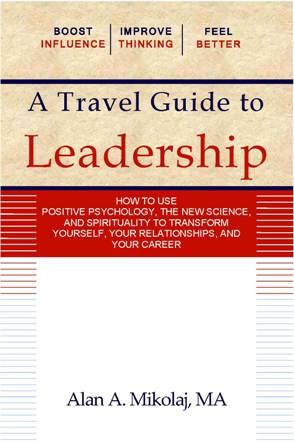
Blog Archives
March 2024
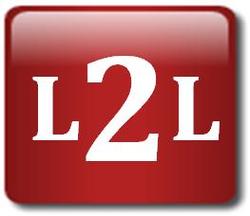
Linked2Leadership
Ranked #1 Business Blog! |
|
CONTACT
TEL: 346-291-0216 EMAIL: alan@alanmikolaj.com |














